Vladimir Odoevskij, das Internet und Weblogs anno 1837
Manchmal mahlen auch die Blogmühlen recht langsam: Anfang Oktober letzten Jahrs berichtete der Blogger Ivan Dezhurney (russisch) über den Literaten Vladimir Odoevskij (englisch auch: Odoevsky), der 1837 eine - erst 1926 veröffentlichte - Utopie mit dem Titel Year 4338 verfasste, in der er zumindest nach Ansicht von Dezhurney das Internet sowie Bloggen voraussagte; der Beitrag wurde von Mosnews (englisch) aufgegriffen und verbreitete sich von dort recht schnell in der englischen Blogosphäre (vgl. z.B. hier), kaum aber in der deutschsprachigen. Vielleicht wird das ja jetzt, wo Peter Plener im Kakanien-Editor-Blog darauf hingewiesen hat, anders.
Laut Mosnews und englischer Wikipedia schrieb Odoevskij in seinem Buch:
Houses are connected by means of magnetic telegraphs that allow people who live far from each other to communicate, (...)
Finally, today we received a household journal from the prime minister, where we, among others, were invited to a soiree. You need to know that in many houses, especially those well connected, such journals are published, having replaced regular correspondence. (...) The journals usually provide information about the hosts’ good or bad health, family news, various thoughts and comments, small inventions, as well as invitations; in case of a dinner invitation, also the menu. Besides, for communicating in emergency, friends' houses are connected by means of magnetic telegraphs that allow people who live far from each other to talk to each other.
Auf die schnelle habe ich übrigens folgende englisch- und deutschsprachige Literatur zu Odoevskij und seinen Utopien auffinden können:
Baumann, Winfried: Die Zukunftsperspektiven des Fürsten V. F. Odoevskij: Literatur, Futurologie und Utopie. Frankfurt am Main: Lang, 1980.
Cornwell, Neil. The life, times and milieu of V.F. Odoyevsky 1804-1869. Athens: Ohio University Press, 1986.
Koschmal, Walter: Die Utopie und ihre künstlerische Realisierung bei Odoevskij und Brjusov, in: Grübel, Rainer (Hg.): Russische Erzählung. Utrechter Symposium zur Theorie und Geschichte der russischen Erzählung im 19. und 20. Jahrhundert. (=Studies in Slavic Literature and Poetics. 6.) Amsterdam u.a.: Rodopi, 1984, S. 195-238.
Levitsky, Alexander: V.F. Odoevskij’s The Year 4338: Eutopia or Dystopia?, in: Mandelker, Amy/Reeder, Roberta (Hg.): The Supernatural in Slavic and Baltic Literature: Essays in Honor of Victor Terras. Columbus: Slavica Publishers, Inc., 1988, S. 72-82.
Neuenschwander, Dennis Bramwell: Themes in russian utopian fiction: A study of the utopian works of M. M. Shcherbatov, A. Ulybyshev, F. V. Bulgarin and V. F. Odoevskij. Ann Arbor, Mich.: UMI, 1981.
Eine englische Übersetzung von Odoevskijs Year 4338 ist ebenfalls greifbar:
Odoevski, V.F.: The Year 4338. Letters from Petersburg, in: Fetzer, Leland (Hg.): Pre-Revolutionary Russian Science Fiction: An Anthology (Seven Utopias and a Dream). Ann Arbor: Ardis, 1982, S. 38-57.
Nachtrag: Der Text ist auch in deutscher Übersetzung greifbar:
Odojewskij, Wladimir Fjodorowitsch: Das Jahr 4338, in: Schneider, Martin (Hg.): Erzählungen der russischen Romantik. Stuttgart: Reclam UB 8629, 1990, S. 292-328.
Erstveröffentlichung der Übersetzung in: Müller-Kamp, Erich (Hg.): Der Polarstern. Ein Spiegel der russischen Romantik. Hamburg/München: Ellermann, 1963, S. 422-464.
Nachtrag 2: Hier die betreffende Textpassage komplett und in deutscher Übersetzung.
Laut Mosnews und englischer Wikipedia schrieb Odoevskij in seinem Buch:
Houses are connected by means of magnetic telegraphs that allow people who live far from each other to communicate, (...)
Finally, today we received a household journal from the prime minister, where we, among others, were invited to a soiree. You need to know that in many houses, especially those well connected, such journals are published, having replaced regular correspondence. (...) The journals usually provide information about the hosts’ good or bad health, family news, various thoughts and comments, small inventions, as well as invitations; in case of a dinner invitation, also the menu. Besides, for communicating in emergency, friends' houses are connected by means of magnetic telegraphs that allow people who live far from each other to talk to each other.
Auf die schnelle habe ich übrigens folgende englisch- und deutschsprachige Literatur zu Odoevskij und seinen Utopien auffinden können:
Baumann, Winfried: Die Zukunftsperspektiven des Fürsten V. F. Odoevskij: Literatur, Futurologie und Utopie. Frankfurt am Main: Lang, 1980.
Cornwell, Neil. The life, times and milieu of V.F. Odoyevsky 1804-1869. Athens: Ohio University Press, 1986.
Koschmal, Walter: Die Utopie und ihre künstlerische Realisierung bei Odoevskij und Brjusov, in: Grübel, Rainer (Hg.): Russische Erzählung. Utrechter Symposium zur Theorie und Geschichte der russischen Erzählung im 19. und 20. Jahrhundert. (=Studies in Slavic Literature and Poetics. 6.) Amsterdam u.a.: Rodopi, 1984, S. 195-238.
Levitsky, Alexander: V.F. Odoevskij’s The Year 4338: Eutopia or Dystopia?, in: Mandelker, Amy/Reeder, Roberta (Hg.): The Supernatural in Slavic and Baltic Literature: Essays in Honor of Victor Terras. Columbus: Slavica Publishers, Inc., 1988, S. 72-82.
Neuenschwander, Dennis Bramwell: Themes in russian utopian fiction: A study of the utopian works of M. M. Shcherbatov, A. Ulybyshev, F. V. Bulgarin and V. F. Odoevskij. Ann Arbor, Mich.: UMI, 1981.
Eine englische Übersetzung von Odoevskijs Year 4338 ist ebenfalls greifbar:
Odoevski, V.F.: The Year 4338. Letters from Petersburg, in: Fetzer, Leland (Hg.): Pre-Revolutionary Russian Science Fiction: An Anthology (Seven Utopias and a Dream). Ann Arbor: Ardis, 1982, S. 38-57.
Nachtrag: Der Text ist auch in deutscher Übersetzung greifbar:
Odojewskij, Wladimir Fjodorowitsch: Das Jahr 4338, in: Schneider, Martin (Hg.): Erzählungen der russischen Romantik. Stuttgart: Reclam UB 8629, 1990, S. 292-328.
Erstveröffentlichung der Übersetzung in: Müller-Kamp, Erich (Hg.): Der Polarstern. Ein Spiegel der russischen Romantik. Hamburg/München: Ellermann, 1963, S. 422-464.
Nachtrag 2: Hier die betreffende Textpassage komplett und in deutscher Übersetzung.
adresscomptoir -
Blogosphaere - Sa, 28. Jan. 2006, 12:15
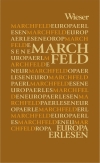
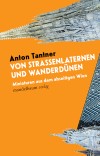
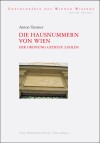
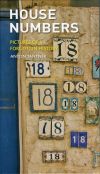

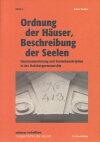

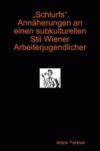
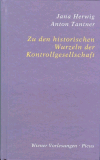
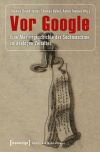
Mfg, Monika Bargmann